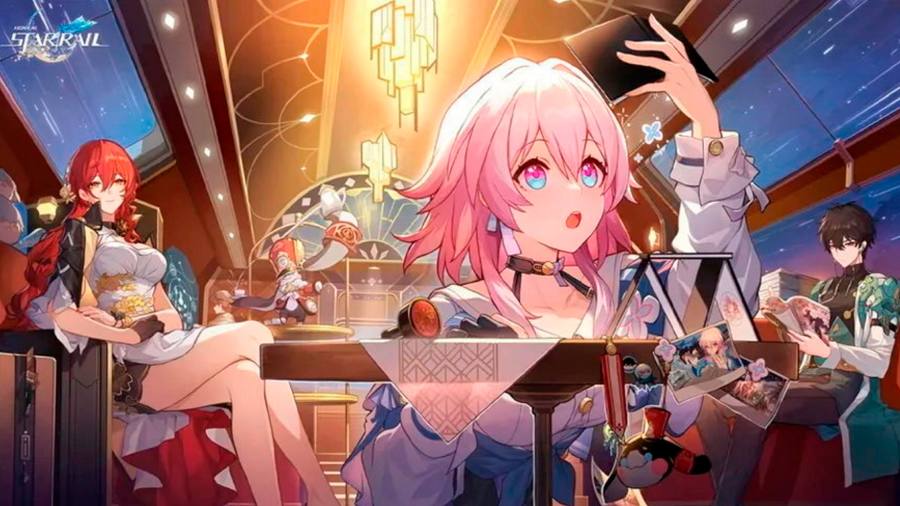On the eve of last month’s launch of miHoYo’s latest online game, Honkai: Star Rail, employees at the Chinese gaming company worked late into the night.
“Everyone was rushing to launch the product. The company has thrown a lot of resources at Honkai. It’s clear the intention is to make it at least as big as Genshin Impact and to make it the main title of the company,” said one employee drafted in to work on Honkai’s release.
A space-travel anime game, Honkai: Star Rail is miHoYo’s second new title since the breakout success of Genshin Impact. How it performs will determine whether the Shanghai studio can establish an enduring role for itself as one of China’s top game developers in the face of competition from industry giants Tencent and NetEase.
Since launching in September 2020, Genshin Impact, which is an anime role-playing game set in an open-world environment, has raked in $4.8bn in revenues on mobile, making it one of the top three money-spinning mobile titles, according to data analytics group Sensor Tower.
“I like the game’s open-world mode, allowing gamers to traverse the virtual environment freely . . . and it doesn’t require players to spend much money to get a good experience,” said Changsha-based gamer Ma Ka, who is an avid player.
The 28-year-old architect has also been playing Honkai: Star Rail since its release, lured in by its “generous free items” and format, which he says is “more suitable for tablets and smartphones” than Genshin.
China’s online gaming market is dominated by Tencent and NetEase, which have 50 per cent and 20 per cent market share, respectively, according to Goldman Sachs research. This is in contrast to most other large gaming markets, where big publishers typically command less than 10 per cent of the market.
“It is too early to say that miHoYo will surpass NetEase or Tencent. But their investment strategy and research and development have been very successful,” said Chenyu Cui, a senior gaming analyst at consultancy Omdia.

Genshin’s popularity has also underscored the increased competitiveness of Chinese gaming studios, which have been developing games with international appeal to combat slowing growth, stringent censorship restrictions and a regulatory crackdown at home.
The industry suffered a major blow two years ago, when Beijing imposed heavy restrictions on the time that minors could spend playing games online, after state media branded them a form of “spiritual opium”. Tencent reported that minors’ gaming time had collapsed by 96 per cent in the first quarter of this year, compared with the same period three years ago.
The regulatory restrictions led to several of the smaller gaming studios closing down after authorities stopped issuing new gaming licences for nine months. Even the large incumbents saw their gaming revenues decline.
Beijing reopened the floodgates on game licences late last year, bolstering gaming companies’ share prices. A week ago, regulators issued licences for 86 games, including a battle anime title from NetEase and a Tencent “first-person shooter” game.
Industry insiders and gamers say restrictions on content have had a less radical effect. Guns, violence and buxom anime girls are still generally allowed, and Chinese game developers’ ability to create global smash-hit titles with uncensored versions is undiminished.
One Tencent gaming team member said Beijing’s intensified focus on the sector had not “changed the content of the games that much”.
“We’re still very focused on the experience of the game. We’ve strengthened restrictions on youth gaming time, but there are not huge differences in the content itself,” they said.
Chinese game developers and publishers have increased their overseas market share from 14 per cent in 2019 to 22 per cent in 2022, according to Sensor Tower.
Part of Genshin Impact’s strategy to expand international market share has been to release updates every five to six weeks featuring new maps, characters and tasks to keep users coming back and spending money. By contrast, most other major titles typically release big expansion packages every three months.
At home, gaming companies are having to balance creating content that can pass Beijing’s censorship restrictions in order to obtain a highly prized gaming licence with developing games that still hook the player in with their entertainment and visual appeal. The compromise has meant studios producing watered-down versions of games, says Daniel Ahmad, senior analyst at gaming consultancy Niko Partners.
He cites the example of changes for the patriotic battle game Peacekeeper Elite, where blood had been turned from red to green and the size of blood splatters reduced, compared with the international version of the game that inspired it, Tencent’s PUBG Mobile. Most changes to appease censors go largely unnoticed though, he added, other than by hardcore gamers.
Ma Ka says the impact of stricter enforcement of censorship rules is clear with Honkai: Star Rail. He said Genshin Impact was trying to appeal to male gamers with “female avatars with big boobs and sculpted legs in black stockings”. By contrast, Honkai’s characters do not “have exaggerated physical features or wear revealing outfits”.
Like many fans of miHoYo titles, this has not deterred him from playing. “I don’t need erotic or violent content in the games,” he says. “I just enjoy the fun of the game playing.”
Stay connected with us on social media platform for instant update click here to join our Twitter, & Facebook
We are now on Telegram. Click here to join our channel (@TechiUpdate) and stay updated with the latest Technology headlines.
For all the latest Art-Culture News Click Here

